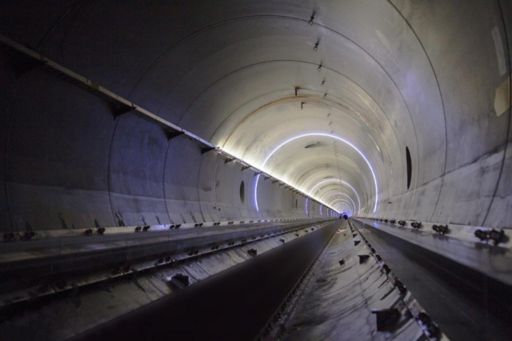Brazil’s new government has an aggressive infrastructure investment plan
Brazil is taking significant steps to try to create an environment that attracts foreign investment and private participation into the market. Recent activity suggests its efforts are bearing fruit.
To find out more about how Brazil has restored investor confidence and revitalized its infrastructure sector, Mauricio Endo, KPMG in Brazil’s Head of Government and Infrastructure, sat down with three public sector leaders with direct oversight over key aspects of the country’s infrastructure plan: Natália Marcassa, Secretary of Development, Planning and Partnership at the Ministry of Infrastructure; Diogo Faria, Secretary of Infrastructure Development at the Ministry of the Economy; and Jonathas Castro, Executive Secretary of the Government Secretariat at the Presidency of the Republic and former National Secretary of Sanitation at the Ministry of Regional Development. Here are some highlights from their conversation.
We’ve significantly improved governance. And we have started to move towards a much more centralized structure with a dedicated agency to coordinate infrastructure investment.
A conversation with three public sector leaders
Mauricio Endo: We have seen significant foreign interest and activity in Brazil's infrastructure markets recently. In your opinion, how has Brazil's infrastructure environment improved over the past year?
Jonathas Castro: I think what we are seeing is foreign investors responding to the changing regulatory climate in Brazil. We've significantly improved governance. And we have started to move towards a much more centralized structure with a dedicated agency to coordinate infrastructure investment. I think these are some of the reasons that investors are becoming much more confident about Brazil.
Diogo Faria: Jonathas is absolutely right. And we are continuing to review virtually all of our regulatory frameworks to ensure they work to attract and ease the flow of foreign capital into Brazil's markets. At the same time, the Government is also taking steps to reduce the influence of state-owned companies in the economy. And we are putting more focus into improving project analysis capabilities and long-term planning. Regulatory change is part of the mix, but it takes more to create an attractive investment climate.
Natália Marcassa: I see lots of evidence that the plan is working. Take, for example, the recent auction for the North-South Railroad concession - undoubtedly one of the greatest early achievements of President Bolsonaro's administration. The auction attracted multiple foreign and local investors and, ultimately, was won with a bid that more than doubled the minimum. Clearly, Brazil's infrastructure auction processes are being very well received in the international markets.
Mauricio Endo: President Bolsonaro's infrastructure plan calls for a doubling of infrastructure investment to approximately US$65 billion per year by 2022. Where do you expect to see the greatest levels of activity and private investment?
Natália Marcassa: The transportation sector is certainly going to attract a lot of interest from foreign players. Through the Ministry of Infrastructure, we are planning the world's largest public-to-private asset transfer program in the transport sector. More than US$52 billion worth of assets will be transferred including more than 16,000 kilometers of main roads, about 15,000 kilometers of railways, airports and port terminals. The next phase of airport auctions scheduled for October 2020 will also attract a lot of attention.
Jonathas Castro: As a country, we have big goals for our sanitation sector. We are aiming to expand access to clean water to 99 percent of the population and sewage to 92 percent of the population in the next 14 years. That is going to require around US$143 billion in new investments across water, sewer, residues, drainage and other sanitation assets. Right now, the Government is finalizing new legislation that will make it much easier to attract private investment to the sector. I think we're going to see a lot of activity in the sanitation space over the next ten to fifteen years.
Diogo Faria: Transportation and sanitation are certainly high on the government agenda. And now, for the first time ever, we have a very detailed long-term infrastructure plan that looks out more than 20 years. The Investment Partnership Program (PPI) website has a list of more than 60 different projects that are currently in different stages of preparation, analysis and prioritization. There are lots of projects in the energy sector - oil and gas in particular. Throughout, we are using global standards of economic modelling to prioritize those investments that will deliver the greatest economic growth to Brazil.
Mauricio Endo: I believe that emerging market leaders are starting to recognize that they need to innovate on the traditional PPP model if they want to attract private investment to their programs. How has Brazil adapted and innovated?
Natália Marcassa: You are right. And, across most sectors, we are always looking to create new models that combine the best aspects of our last tender with new rules and mechanisms. We are working with hybrid models that consist of higher grant values and lower toll rates. We're also exploring the use of variable grants that would be paid quarterly and as part of the base of the gross concession revenue. Our focus is on making sure the competition phase and the administration of contracts are more robust throughout the concession period.
Jonathas Castro: I think a lot of lessons were learned from the recent airport auctions. The biggest lesson was that - across many sectors - we need to build scale to make investments viable. The airport auctions have been for `blocks' of assets and that scale has allowed investors to come forward with investment and operational plans that maximize efficiency while delivering services at scale. I think the Government sees that this approach could be applied in many other sectors including the sanitation sector.
Diogo Faria: Similarly, I believe we are also starting to see a shift in thinking from 'asset creation' to 'outcome delivery'. Ministries and investors understand that technologies are rapidly evolving and that is leading some of the more innovative sectors to start thinking about how they can start contracting for outcomes rather than for specific assets or technologies. The goal should be, for example, delivering X amount of iron ore from point A to point B. How that happens is almost a secondary point.
Mauricio Endo: What do you think foreign investors, developers and operators need to know about Brazil today?
Natália Marcassa: Brazil is a business-friendly country. Our economy is opening, we are addressing the main risks that worried investors in concession contracts, and we have a huge pipeline of projects to be developed. I'm not aware of any other country in the world that can compete with our infrastructure pipeline, our rates of return and our level of legal certainty.
Jonathas Castro: I would agree. And I think we have put a lot of effort into improving the overall business environment and adopting best practices across the infrastructure market. And that, in turn, has allowed us to create much more robust and transparent concession models and investment structures. I think the clear message here is that Brazil is making the changes that are needed to propel the country forward over the coming years.
Diogo Faria: Simply put, Brazil is back in business.








